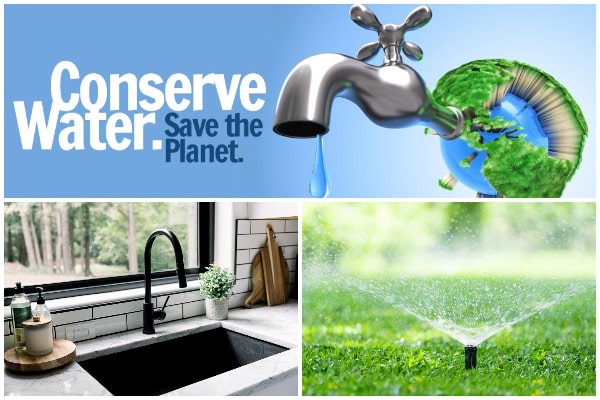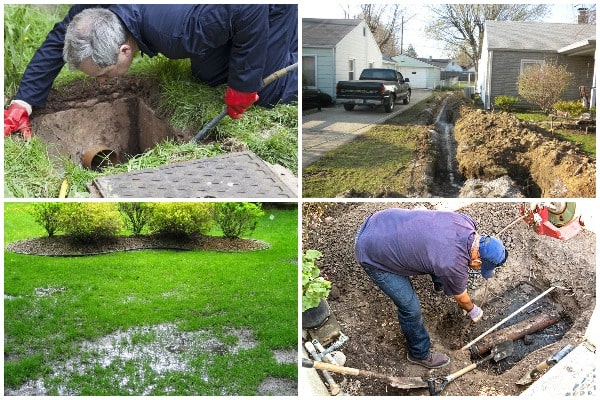Whenever disasters are talked about, earthquakes, hurricanes, and tornadoes are the first conditions coming to mind. Rarely do people talk about drought when it’s another serious disaster that can leave people stranded.
As the saying goes, water is life! So missing or having a limited supply of this natural resource can greatly impact people’s lives.
Water Conservation 101
Global warming has been a serious subject for many years, and the effects are starting to show today. The rate at which the earth is heating up suggests more people are likely to be affected by droughts shortly.
For this reason, learning the basic skills of conserving water can be vital. This article aims to arm you with the necessary tips to pull through a water-related pandemic.
Also Read: Top 5 Ways to Conserve Water in Your Home

1. Mulching
When drought strikes, many people neglect their flowerbeds and trees due to the amount of water they need to survive. However, there’s a better option in mulching.
Put down a layer of mulch in your flowerbed and around the undeveloped trees or any other crop in your compound.
So how does mulching help? This technique has a lot of benefits both during rainy seasons and when droughts strike. In your current situation, the mulch will reduce or prevent water evaporation.
Of course, the hot sunshine encourages evaporation, but with a layer of mulch, the coil won’t be hit by direct sun rays.
2. Stop Bad Habits
With plenty of water at your disposal, there are a lot of things you can afford to do. However, these habits can be disastrous when there’s a limited supply of this important resource.
For instance, how long do you shower? If you’re still doing 20 to 30-minute bath time, then you need to change. It’s a no-brainer running the shower for longer periods as it increases the chances of running out of water.
Another bad habit you should stop is leaving the tap open while brushing your teeth. Opening the tap only when necessary can go a long way in ensuring you conserve the little water you have in your tanks.
In the same vein, avoid flushing the toilet unnecessarily. They might not seem like a big deal, but such small measures can go a long way in helping you during such disasters.
Also Read: 5 Expert Tips for a Successful Apartment Bathroom Makeover
3. Repair Any Leaks

Leakages are common in many homes, but many people ignore or don’t know much about them. Whether it’s around the faucet or along the pipes buried beneath the walls, the water lost in the process isn’t only going to damage your home but will also drain your tank. So how do you go about it?
If you don’t have the necessary skills, it’d be prudent to find a professional plumber and let them assess the condition of your plumbing system.
Are there any noticeable or hidden faults? Make sure you leave no stone unturned; otherwise, you might struggle to meet your domestic needs during this period.
4. Go For A Commercial Car Wash
With a limited supply of water, washing your car suddenly becomes a luxury. In fact, some people prefer to drive around in dusty vehicles, which is socially commendable.
However, regardless of the situation, having a clean car breeds confidence. Fortunately, you have a few options you can try.
First, you can take your car to a commercial washing area. You’ll be charged a small fee, but it’ll help you conserve the water you have in your tanks at home.
The good thing about these facilities is most of the water is recycled. Therefore, they can operate consistently, even during droughts.
Another option you might want to try is to wash your water using a bucket rather than a hosepipe. Just fill the bucket with water and use a spongy material to apply in your vehicle. Once you’re done with the first round, get another bucket of clean water to rinse your car, and you’re done.
Conclusion
Water is one of the most important resources in a human’s life. Therefore, when its supply is limited, you need to adjust your daily habits to fit the situation. For instance, if you’re used to longer showers, you might want to work on that to ensure you conserve. It also helps to have a water filtration system at home as well.
You can also achieve the same through mulching since this reduces water evaporation in your flowerbeds and around other crops in your compound. Planning to wash your car?
Do it at a commercial car washing facility. All these changes are geared toward helping you pull through droughts and other water-related disasters.